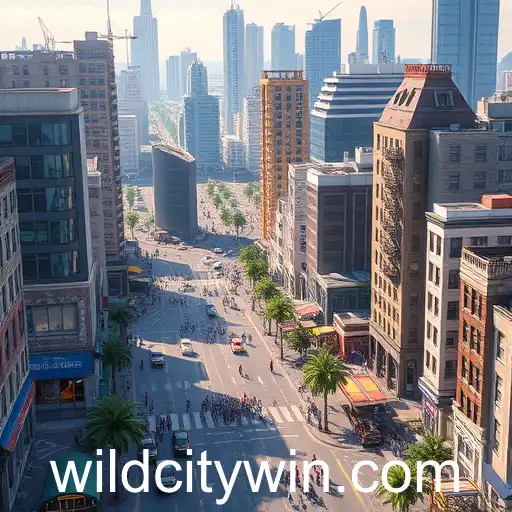Simulation Play has emerged as a fascinating category within the digital gaming landscape, capturing the imagination of players with its diverse and immersive experiences. At the forefront of this genre is the subcategory referenced by the keyword 'wild city'. Games within this niche transport players into vibrant urban environments teeming with life, challenges, and opportunities, illustrating the complexities and beauty of modern city living.
The 'wild city' concept in simulation gaming usually offers a sandbox-style experience where users can craft their unique narratives. These games often blend realistic city-planning intricacies with playful elements, allowing players to build, manage, and grow their unique metropolises. This genre pushes boundaries by offering not just static simulations but dynamic worlds that can change based on player decisions and various unpredictable elements.
In the thick of a wild city's hustle and bustle, players can experiment with urban development strategies, explore economic fluctuations, and navigate social dynamics, offering a reflective mirror of real-world urban management. The blend of structured objectives with open-ended gameplay allows for infinite variations in outcomes, ensuring sustained player engagement.
Additionally, many wild city simulations now incorporate elements like sustainability and technological advancement, aligning with contemporary global challenges. For instance, themes of environmental stewardship or the integration of smart technologies offer a nuanced layer that both educates and entertains. This ability to mesh entertainment with education is a hallmark of simulation play, making it not just a pastime, but a tool for reflection and learning.
Community engagement is another critical aspect that fuels the popularity of 'wild city' simulation games. Players often engage with online communities to share strategies, mods, or custom designs, further enriching the gameplay experience. The social component underscores the collaborative spirit of simulation plays, where individually players may shape worlds, yet together, they form a larger tapestry of innovation and creativity.
Ultimately, the allure of 'wild city' simulation play lies in its capacity to offer both an escape and an insight into urban life. Whether navigating the intricacies of city governance, experimenting with urban designs, or simply enjoying the unpredictability of a bustling digital world, players find a unique satisfaction in these adaptive and ever-evolving universes.

This article delves into the intriguing world of 'Wild City' simulation games, where players engage with dynamic urban environments. By examining the core features and the socio-economic themes they explore, the piece highlights how these digital representations of city life offer both entertainment and educational value. It discusses the appeal of city-building dynamics, community interactions, and the role of modern challenges like sustainability within these games.




